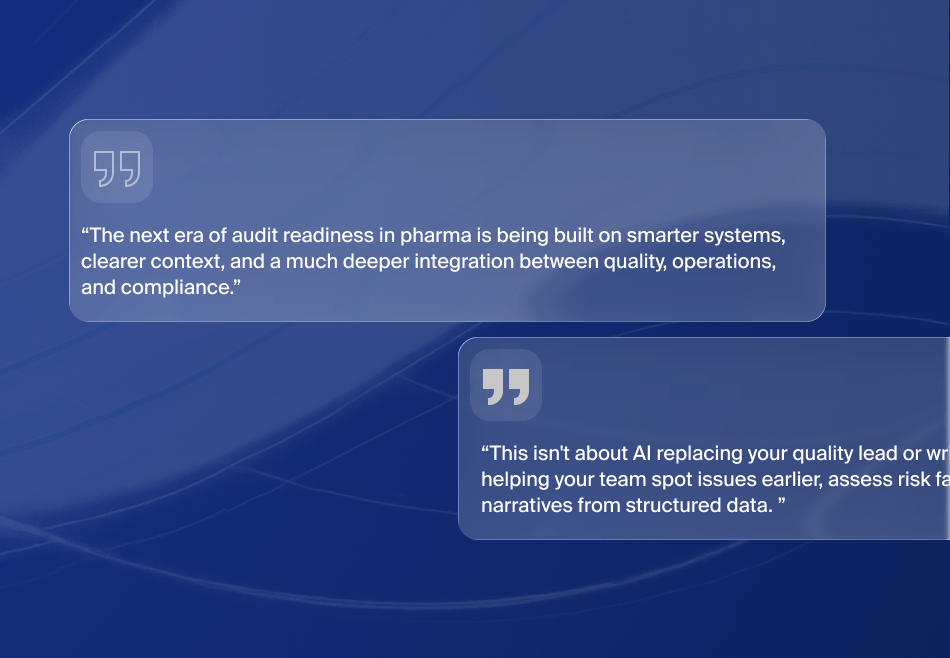At a Glance
- The chemical industry has been at the forefront when it comes to dealing with disruptions as it serves a diverse range of sectors and constitutes of different attributes (such as raw materials, quality issues, geographical/ regional safety rules, financial instabilities, so forth.).
- Currently, the impact of Covid-19 on chemical industry can be seen across the globe- disrupted supply chains, demand discrepancies, halted travel and fluctuation in petroleum prices have compelled manufacturers to deal with various chemical industry issues all at once.
- Digitization has disrupted the chemical industry even before the pandemic started and the combined effect has been both challenging and a blessing in disguise for the chemical manufacturers.
- Through the right tools and systems, the chemical companies can pave their path in the era of digitization and transform for a better future.
The challenges in chemical industry have been varying in nature as the industry relies on a large variety of stakeholders and is an asset-intensive sector. The past few years have been all the more challenging in chemical industry management because of the onset of Industry 4.0 and ensuing changes in IT infrastructure. However, the digitization effect also came as an opportunity for chemical manufacturing and distribution companies to leverage latest technologies to reduce time to market, optimize processes and manage supply chain challenges in the chemical industry with enhanced efficiency.
According to a 2020 survey by PwC, 42% of chemical company CEOs said they would be investing in digital operations and related technologies in the coming 12 months.
To remain on top of the digital game, companies must understand and approach chemical industry issues fully equipped with advanced technologies and comprehensive strategy. Let us have a look at some of the significant challenges in the chemical industry:
1.Managing Data in the Time of Information Abundance:One of the significant challenges of digitization in the chemical industry is an overflow of data in the sector. Top floor decision-makers are looking for ways to store, analyze and generate insights from the abundant information flow. Data analytics remains a tricky area for many chemical manufacturers. Legacy systems are still part of many manufacturers’ IT infrastructure and there are discrepancies in information flow management because different functions work in silos.
2.Overcoming the Unpredictable Nature of the Market:Market fluctuation is another major cause of chemical industry disruption. The ever-changing commodity prices put manufacturers in a sticky spot in terms of finances. Also, the impact of the covid-19 pandemic was felt in the form of demand pattern changes – there has been heavy demand globally for sanitization and hygiene products. Such fluctuations are hard to forecast, and most chemical industry management struggles to keep up with these changes.
3.The Need to Go Agile:The world is moving fast, and the manufacturing industry is looking to catch up. Chemical companies are primarily looking for ways to go agile for better delivery patterns, improved change management and measurable productivity. However, companies face different challenges when going agile such as financial constraints, resource skill management, and resistance from employees.
While the challenges are aplenty, there are ways to overcome chemical company issues. Let us have a look at how companies can manage the disruption in the chemical industry.
1.Investing in Fortifying IT Infrastructure:Chemical companies need to turn to technology as-required but a long-term roadmap is required that justifies the investment. By investing in high-end tools and systems, chemical manufacturers can ensure that their processes are automated, the data is collated and leveraged to generate insights for better business decisions, and the operations are optimized. Going for comprehensive enterprise resource planning (ERP) tools with embedded BI tools can transform how chemical companies approach their operational requirement.
BASF, the global leader in chemical manufacturing, made use of the Microsoft 365 to improve the transparency and efficiency of virtual teamwork within our global family. This choice was a direct result of the company’s move towards agility.
2.Supply Chain Optimization:Another area where chemical companies can turn a corner and embrace the ongoing changes is to optimize their supply chain. Bettering stakeholder communication, facilitating real-time inventory monitoring, and avoiding stock-outs or bottlenecks by proper warehouse management are some of the steps that manufacturers need to take for a well-functioning supply chain.
Figure 1:Areas getting benefitted with ERP in chemical manufacturing

3.Prioritizing Innovation:The highly disruptive digital landscape will multiply the challenges in the chemical industry. However, organizations can resolve these challenges by encouraging innovation. Chemical companies should invest in better market research, newer and more efficient production processes, and out-of-the-box customer response management initiatives. These would enhance overall productivity and also help companies in cementing their position in the volatile market.
In conclusion, disruptions are excellent catalysts to improve processes within a chemical company. Businesses can equip themselves with the latest technologies on a path to digitization.
Key Takeaways:
- Chemical companies need to look at disruptions as opportunities to overcome challenging times.
- Latest technologies play an imperative role in chemical manufacturing and aftermarket services as well.
Get a evaluation on ERP for Chemical rapid packages!








